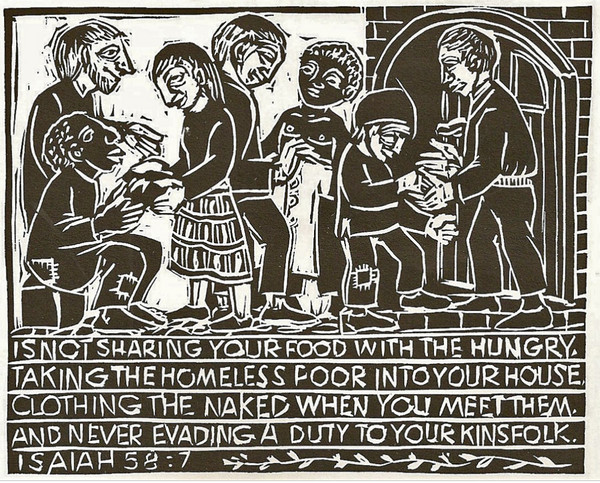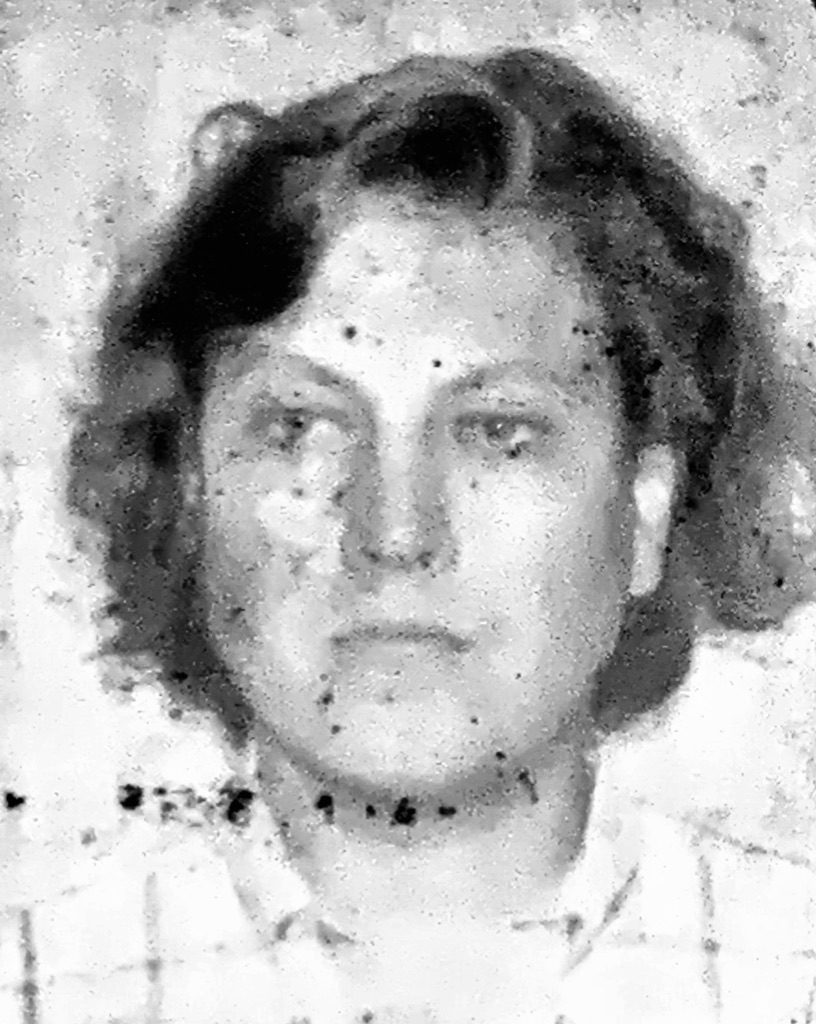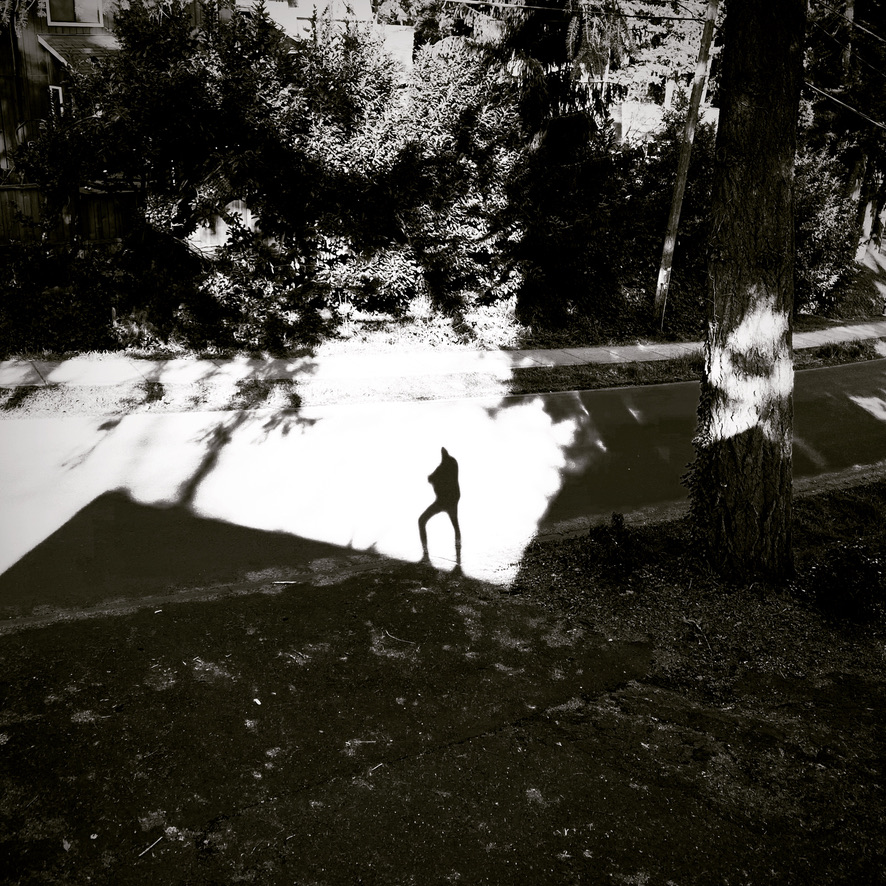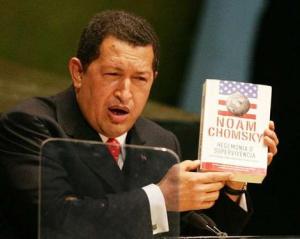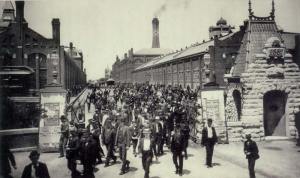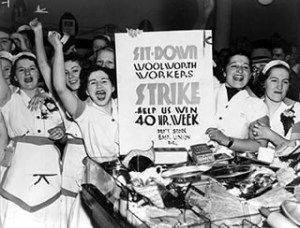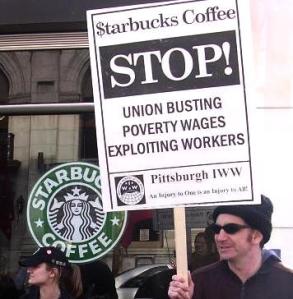I asked what they thought Herod would have said if he had known that a woman of the people had sung that God had pulled down the mighty and raised up the humble, filled the hungry with good things and left the rich with nothing.
NATALIA laughed and said: “He’d say she was crazy.”
ROSITA: “That she was a communist.”
LAUREANO: “The point isn’t that they would just say the Virgin was a communist. She was a communist.”
“And what would they say in Nicaragua if they heard what we’re saying here in Solentiname?”
Several voices: “That we’re communists.” *
Maybe you or someone you know has followed a path analogous to mine.
On January 16, 1991—a Wednesday, if I remember—I walked across the university campus to my cinema discussion group. I was a graduate student pursuing my first Masters degree. When I arrived the classroom was nearly empty and dim. A boombox sat on a table airing an NPR radio newscast. The bombing campaign had just begun for what was officially called Operation Desert Storm and which would eventually be called the First Gulf War. Put simply, my class was spontaneously cancelled because war had started. The few students that showed up milled around gloomily and then left one by one. It was the first time in my life I could recall war having a direct impact on me, and the first time I experienced people emotionally distraught from such an event.
The actual impact to me was objectively almost nothing—class was cancelled—but I was quietly shocked and didn’t know what to do with my feelings. My feelings, however, were not about the war itself but about not feeling what the others were feeling. The other students were upset and I couldn’t understand why. I knew something was wrong with me, and I knew this because I claimed to follow Christ. Should not I too be weeping?
I realized I knew almost nothing about politics, or contemporary world events or having (let alone airing) opinions about any of that. I knew nothing about how my thinking about being an American was largely formed by others intent on shaping the world according to their image. My family never talked about politics. In fact, I can’t remember ever having a truly serious conversation about anything like this with my family. We just didn’t go there. I had a feeling I was somehow very late to the discussion and everyone else seemed to know something I didn’t. I wasn’t prepared to learn much from this event but that feeling stuck with me. I also wondered why no one in my Christian social group had a similarly distraught reaction to the war as did my classmates. All the Christians I knew either were excited about the war or didn’t care. I wondered if something was deeply wrong with the Christianity I inhabited. And then I forgot about it.
I forgot about it but I can trace the beginning of my slow conscientization, coming to realize I had uncritically and happily accepted the dominant paradigm of the ruling class.
Ironically, in grad school (and even as an undergraduate) I was being introduced to Feminism and Critical Theory, to Structuralism, Post-Structuralism, Semiotics, and Deconstructionism, as well as to various Marxist concepts of power structures and superstructures, and of the manipulation of media by the ruling class. I read the Frankfurt School authors, also Jakobson, Gramsci, Parenti, Chomsky, Foucault, Derrida, Barthes, Ecco, Berger, and others. And I loved it. I still do, reading them from time to time. In a sense my head and my heart, both formed by my love for Christ and the Scriptures, were becoming informed by (pulled towards) a Marxist/Leftist/Socialist way of thinking, but I didn’t really grasp that was happening at the time. I didn’t even pick up on that fact that most of those authors were either Marxists or were writing in response to Marxism. I can just kick myself now for wasting that opportunity.
I was also a “good Christian boy” raised as a Baptist who voted Republican because that’s what my parents and all their Christian friends did. I was fundamentally clueless about politics or the “big picture.” Rather, I was enjoying being in the weeds of film and art theory, not realizing many of its political orientations. My focus was aesthetics not politics. Real world implications did tug at me but subconsciously knew (trained to “know”) the radicality of Leftist thinking and I retreated. I had been formed to believe there could never be any sympathies between the Christianity I knew (presented in culturally, nationally, and ethnically circumscribed forms as timeless and natural Truth) and Socialism (always presented as gravely evil and stupid).
Much of my formation came in the form of everyday conversations and actions from those in my social group. One’s beliefs are often carried along by the pervasive but subtle subtexts of conversations, social groups, unspoken presuppositions, and cultural aesthetics. I was careful not to take a misstep. Belonging and being accepted is a powerful drug.
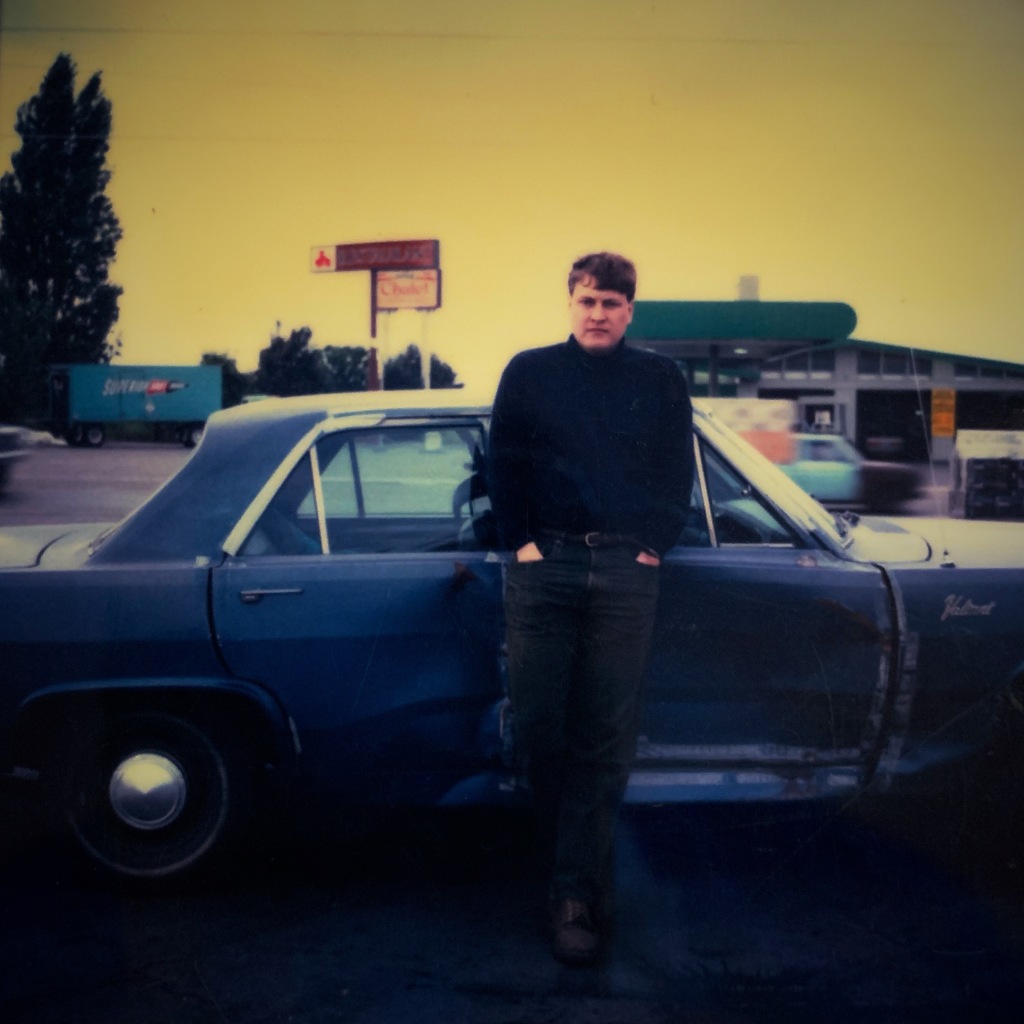
A decade or so later I followed the Iraq War (the Second Gulf War) with far more curiosity. My initial interests in both the first and second gulf wars arose from a fascination with how powerful the United States military is and how was the rest of the world going to acquiesce. Military might in action is powerful stuff—shock and awe. It was exciting and excellently choreographed theater viewed from my television and computer screens. But soon my personal views began to change. The more I learned the more I became deeply skeptical of the narrative. I could no longer accept U.S. politics. I did not trust or respect our leaders who were clearly lying, even the “good ones.” I searched out alternative news sources, different perspectives, and a few voices I had listened to before. I learned of various anti-war positions and Leftist critiques, and I discovered for myself an entire area of Christianity I didn’t know existed. In short, I learned about anti-war and pacifist Christianity and Liberation Theology. I learned about American Christians who sharply criticized the pro-war, flag waving, God bless America version of Christianity. And it all rang true for me. It took a while, though. This is the short version, the reality was a complex, back-and-forth process. A lot of people have taken this journey I’ve learned.
I left the Republican Party. I came to believe I could no longer continue as a member of that party and be a faithful follower of Jesus Christ. But I could not see how I could be a member of the Democratic Party. So I became an Independent. I wanted no requirements placed upon me to acquiesce to any party platform. This seemed like the right choice both in terms of my faith and for my own intellectual integrity. I still hold these views today (though at times I toy with the idea of joining an alternative party).
Eventually, and through a lot of twists and turns, I became a Catholic, in part, because the Catholic Church is a “big tent.” One finds a multitude of perspectives and proclivities in the Church. I wanted to be where I could continue to explore my ideas and thoughts on politics, economics, sociology, and more. I was attracted to Catholic Social Teaching, to people like Dorothy Day, and to papal encyclicals criticizing capitalism all within the boundaries of an orthodoxy going back to apostles. I also love how truly global the Catholic Church is compared to the myopic, self-absorbed, geographically limited, socially stunted, and often nationalistically American cul-de-sac Christianity within which I was struggling. I also wanted a Church that would allow me to explore Socialism, or any other politics, from within a Christian framework, encouraging me in my freedom to do so, but also providing some guardrails and cautions along the way.
I suppose this post is one where I get myself in trouble (with myself mostly) for finally admitting something I’ve wanted to admit for twenty-plus years in one way or another.
I am still figuring things out for myself, still on this journey. But when I look at the social and economic options available in the world, when I look at the example of the early Church, when I take seriously the commandments of Christ, what I find is that Liberation Theology strikes me as the most Gospel-oriented, most Christ-centered socially, most humanitarian economic and political position to take. And with Liberation Theology one gets a rich interaction with Marxist ideas and Socialist praxis, both of which are merely subservient tools of the ultimate Truth of Christ who is the standard. If we insist on using the very limited terms of Right and Left, then I would say the Gospel of Christ, arising from and rooted in the very person of Christ Himself and in the ultimate goal of divinization, leans politically, economically, and socially more Left than Right, more to the future than the past, more to love of neighbor than protection of the self. **
Responding to real-world situations of colonialism, capitalism, authoritarian violence, exploitation, and foreign influence in Latin America, Liberation Theology sought to address these evils from a truly Catholic perspective, rooted deeply in Christ, rooted deeply in Scripture, rooted deeply in Vatican II, ever seeking the examples of those who have struggled before, and helped by cautiously leveraging the tools of Marxist critique and communist praxis. [Queue the bourgeois American eye roll.] Ironically, by focusing on the unique historical situation of Latin America, Liberation Theology addresses the universal situation of humanity—bondage and suffering across the globe because of sin, the poor besieged by the rich, labor unfairly exploited by capital, lack of democracy, propaganda promoting ideologies of oppression, social and legal systems in place to ensure the poor and weak are perennially oppressed and their own human flourishing suppressed, and finally, Christian/Catholic pastors turning their backs to the poor and preaching in support of the ruling class and a bourgeois church.
Beginning with Christ, Liberation Theology seeks to fashion a Gospel response to the evils of the world, and it did so, in part, by finding truth in the fundamental insights of scientific Marxism (not unlike Thomas Aquinas finding truth in Aristotle). But the Church hierarchy has, since Constantine, sided with the ruling class and with capital, thus the work of Liberation Theology tends to fall on the shoulders of a few theologians, priests, and ordinary Catholic laity willing to take the risk and put in the labor out of love and necessity. Carrying the gospel and Catholic social teaching to their proper and logic ends, Liberation Theologians found connections with the goals of many Leftists. Consequently, and employing various tactics, the Church denounced Liberation Theology. But I find Liberation Theology both true and refreshing. I am convinced by its understanding of the gospel, and I am moved deeply by the martyrdom of many faithful Catholics, including laity, bishops, priests, and nuns, at the hands of evil men merely because they stood for the poor against the rich as Christ commands us. I am disgusted by the efforts of Catholic prelates to squash Liberation Theology, denouncing saints such as Oscar Romero (but now they can’t because he’s finally and properly declared a saint) and supporting evil structures of power. The church is peopled with many who hate Christ in the name of Christendom and national politics; this even includes bishops. Sadly, much of this vilification is as much about race as it is about class.
So here I am, a devout Christian, a white middle-aged American working class man with inherited bourgeois values, a husband and father, a happy convert to the Catholic Church, leaning fairly hard to the Left and thinking maybe I should lean harder, and finally realizing that much of Christendom probably was and still is largely a human construct designed to “protect” the Church and the ruling classes from the convicting nature of the Gospel, from the internal revolutions of the Holy Spirit, and from the burdensome cries of the poor. Will I be marching in the streets waving a red flag? Will I be joining DSA, wearing a Karl Marx t-shirt, calling my friends comrades? Not likely, but I do want to be more sensitive to the liberating and this-world message of the Gospel. I want to be a follower of Christ.
A crazy journey I guess. I hope yours is going well. God be with you.
* Quoted from The Gospel in Solentiname by Ernesto Cardenal from the chapter on the Magnificat. This book is a collection of discussions of Gospel passages that happened in the artist/peasant community on the big island of Solentiname in Nicaragua between 1976 and 1982.
Cardenal, Ernesto. Gospel in Solentiname. REV One-Vol ed., ORBIS, 2010.
** I hope the reader understands that Right and Left in the US does not map to Republican and Democrat. Rather, Democrat and Republican are center-Right and further Right. The Democrats are arguably the primary nemesis of the Left.

